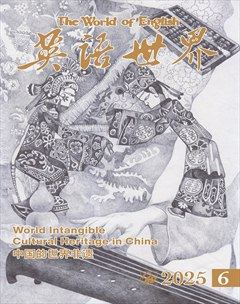At first glance, Ima Keithel is much like any other market. Lines of vendors are here from dusk until dawn, eagerly flogging everything from fresh fruit to fish and fabrics. But after walking through its huge network of more than 5,000 stalls spread across three multi-story buildings and a sea of surrounding tin shacks, one unique aspect becomes hard to ignore: every single trader, without exception, is a woman. “We are just like family, we’re sisters,” says Meilani Chingangbam, a 65-year-old who has been selling religious ritual products like incense and shrine decorations at the market since 2002. “It’s a beautiful place to work. Everyone is trusting and kind.”
乍一看,伊玛·基塞尔集市和其他集市差不多,一排排摊贩从黎明到黄昏在这里热情兜售着各色商品——从新鲜水果到鱼和织物,应有尽有。然而,穿行于三幢楼房和周围一片铁皮棚子里总共5000多个摊位之间,你会很快注意到一个特点:所有商贩都是女人,无一例外。“我们就像一家人,是姐妹。”65岁的梅拉妮·钦冈巴姆说道,“在这里工作很棒,大家相互信任,都很友善。”她从2002年起就一直在该集市销售宗教仪式商品,如香和神庙装饰品。
Ima Keithel, meaning “mother’s market” in the local Meitei language in Imphal, the capital of India’s northeastern state of Manipur, is said to be the largest women-only market in the world. Men can enter the space, but only to buy goods, or to work as porters or guards.
因帕尔是印度东北部的曼尼普尔邦的首府,在当地的曼尼普尔语中,Ima Keithel义为“妈妈集市”,据说这是世界上最大的纯女性商贩集市。男性也可以进入这片区域,但仅限于采购商品,或是充当搬运工或保安。
During the early morning rush, the scent of eromba, a local dish of mashed potato, bamboo shoots and dried fish chutney, sizzles through the air. In one corner, a group of matriarchs are huddled around discussing problems with delayed deliveries and subpar produce. All the while, women stop by to leave offerings at the shrine of Ima Imoinu, the goddess of wealth and business and the market’s main protector.
清早总是一片忙乱景象,空气中飘散着“埃隆巴”的气味,这是当地的一道菜品,由土豆泥、竹笋和鱼干酸辣酱制作而成。几个领头的妇女聚集在一个角落,协商着关于交货延迟和产品质量欠佳的问题。而与此同时,女人们在伊玛·伊莫伊努神龛前驻足,奉上贡品——伊玛·伊莫伊努是财富与商业女神,也是这个集市的主要守护神。
The crowded aisles are stacked high with all manner of delightful treasures: fragrant pinewood and jade-colored betel nut leaves, handcrafted pottery and bamboo baskets, fine silken blankets and rugs in technicolor1 hues. Filling the spaces in between them are rows of traders wearing vibrant pink, yellow, red and green shawls. “You can get absolutely anything you could dream of here,” says Lina Moirangthem, a local Meitei tour guide. “The market is cheap and right in the heart of the city. The entire state’s economy practically runs thanks to these women.”
拥挤的过道上堆满了琳琅满目的货品:有香香的松木和翠绿的槟榔叶,有手工制作的陶器和竹篮,还有色彩斑斓的精美丝绸毯子和地毯。过道之间是一排排商贩,她们都披着披肩,粉的、黄的、红的、绿的,很是鲜艳。“你能想到的任何东西,在这儿几乎都可以买到。”曼尼普尔当地导游莉娜·莫伊朗特姆说,“集市位于市中心,商品都很便宜,这些妇女带动了整个曼尼普尔邦的经济。”
Per custom, only women who are married can officially trade in the market, and to gain a space in the official area, a woman must be nominated by a retiring vendor, who will usually choose a successor she is related to like a sister, daughter or cousin. Priya Kharaibam, for example, is the third generation of her family’s pottery traders at Ima Keithel, following on from her grandmother. “I am proud to run the family business,” says the 34-year-old, flanked by a wall of terracotta pots.
按照惯例,只有已婚妇女才能在该集市正式做生意,若要在正规区域有摊位,必须获得一位准备退休的老商贩的指派,而老商贩一般会从其亲属中选择接替者,像是姐妹、女儿或堂表姐妹。





